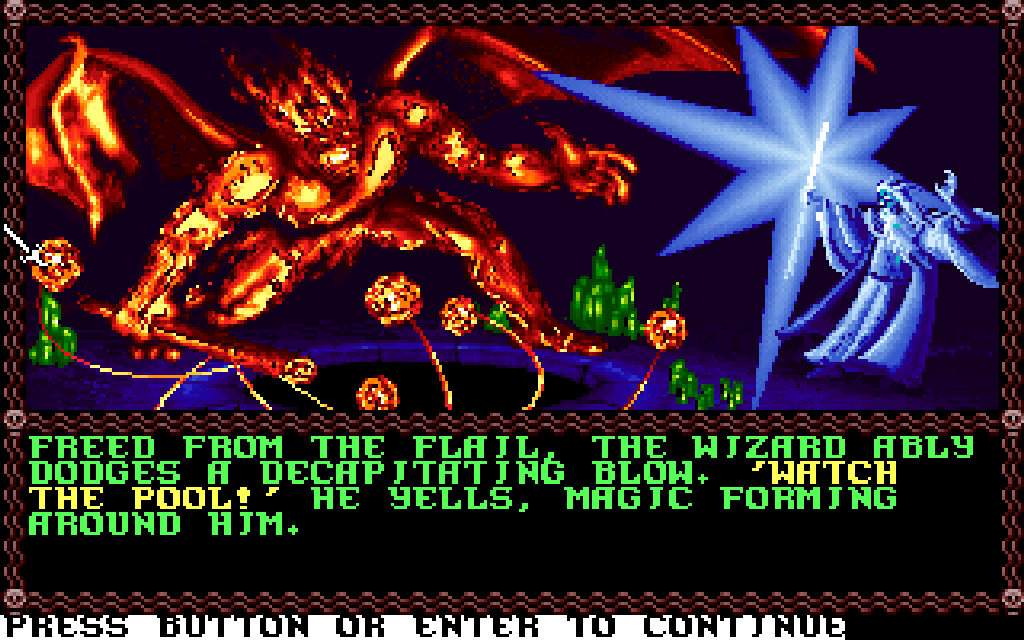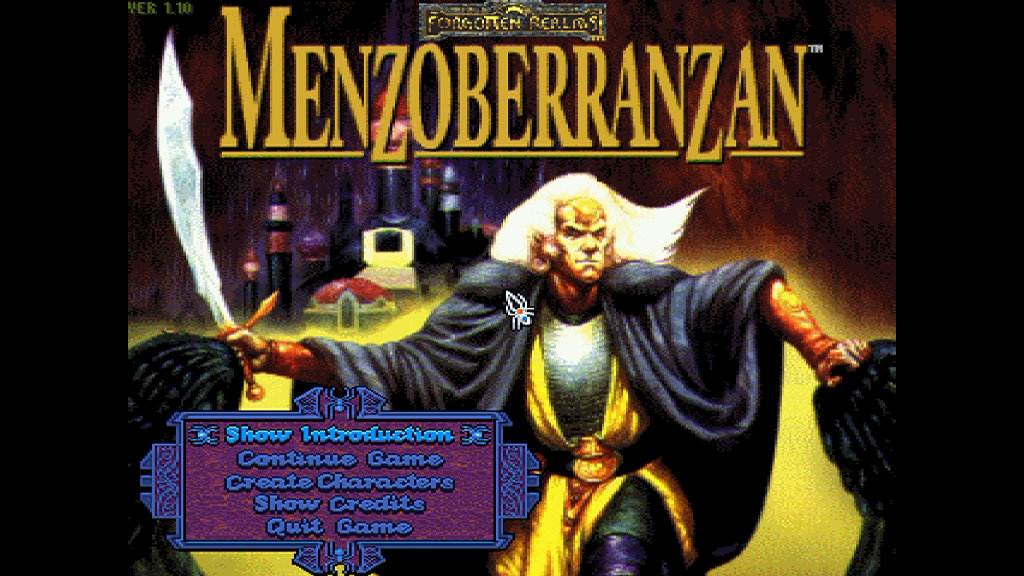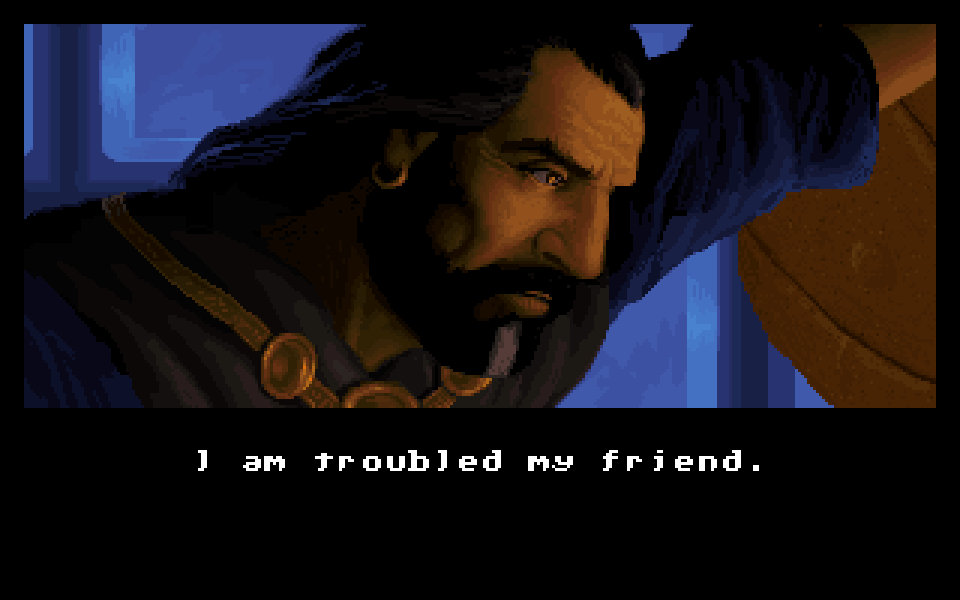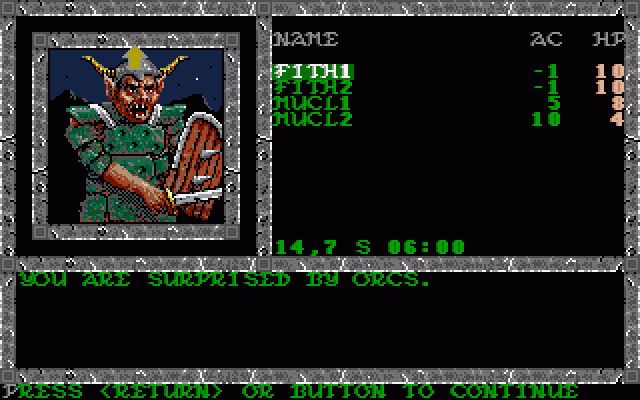How GOG rescued 13 Forgotten Realms games from licensing hell
The battle to save 13 classic RPGs from extinction.

In the 1980s, Dungeons & Dragons was huge, and so were the spin-off video games set in the Forgotten Realms—titles like Pool of Radiance, Eye of the Beholder, Curse of the Azure Bonds, and the awesomely named Menzoberranzan. Why have so few people played them? Because, like Planescape: Torment and Baldur’s Gate, they spent 20 years lost in licensing hell. Until Good Old Games finally tracked them down.
Finding the missing games, establishing who owned which parts of them, and getting them into a playable state took many years. The first step was to work out who owned what. After all, the original developers SSI disappeared into Mindscape in 1994, before being passed through The Learning Company, Mattel and Ubisoft—and D&D games were licensed from TSR, who closed in 1997.

As GOG’s Oleg Klapovsky explained to us, “with classic games like those from the Forgotten Realms series, years of mergers, acquisitions and bankruptcies can really leave the rights sitting in very strange places... like banks, or enormous conglomerates. Sometimes the original documents aren't even digitized, so somebody has to physically head down to the figurative cellar and dig through countless cabinets.” On top of that, the art, the music, the license, the digital distribution rights, the code can all be owned by different people.
So GOG went to SSI, and hence to Ubisoft, who were also the publisher of the first SSI game. “After considerable back and forth, it unfortunately (though perhaps fortunately for us) turned out to be a dead end.” says Klapovsky. “The rights were not with Ubisoft. They were sold or left behind somewhere along the way.”
Then GOG went to the next logical place, the current owners of D&D, Hasbro/Wizards of the Coast. “While they did own The Forgotten Realms intellectual property and were very excited for what we're doing, they also had never gotten the actual games themselves.” Another dead end.
With the trail running cold, GOG tracked down SSI’s original president and founder, Joel Billings. “As a huge fan of D&D he was willing to help walk us through a detailed history behind SSI mergers and narrow the search down to two potential candidates: Mattel, or Gores Technology Group (who had acquired The Learning Company). The latter was a hit. We had found the actual rights owners to the Forgotten Realms games, and after several more months of negotiations, they agreed to sell them to us outright.”
GOG managed to recover 13 games this way. The party-based RPG Pool of Radiance; its sequels Curse of the Azure Bonds, Secret of the Silver Blades, and Pools of Darkness; C&C creators Westwood’s minigame RPG Hillsfar; the RPG construction kit Unlimited Adventures; Westwood’s first-person Eye of the Beholder Trilogy; the roguelike FPS Dungeon Hack; the two Savage Frontier games; and the Underdark exploration game Menzoberranzan.
Keep up to date with the most important stories and the best deals, as picked by the PC Gamer team.
Then it they had the not-so-small matter of getting all 13 running and bug-free for modern systems including Windows 10.
Then it they had the not-so-small matter of getting all 13 running and bug-free for modern systems including Windows 10. Considering these were huge games—and not bug-free in their release versions—that’s a massive task.
One of the stranger challenges has been to get the Code Wheels working—the nostalgia-inducing cardboard security devices that came in the SSI Gold Boxes. “We considered trying to remove the need to use these codes during gameplay (much like we've done with several of our games in the past) but instead decided to opt for leaving that mechanic intact for the sake of a cooler, more authentic old-school experience.” So each game has a printable DIY code wheel for players to construct and a software version as well.

For the SSI team who created them, it’s great that these games will get rediscovered by a new generation. After all, they put their heart and souls into them, as lead designer David Shelley explains. “SSI had bet its future on the franchise, bringing in their first artists, and creating a team much larger than the 2-3 man teams they usually had.” Thankfully, the games did so well that, as one of the programmers said, “we could have shipped pancakes in a D&D Gold box and made money.”
Though it sounds ridiculous now, before these games came out it was thought that the computing power simply didn’t exist to represent D&D accurately. As SSI programmer Keith Brors recalls, “These games were extremely advanced for the time. The C64 and Apple II versions were written completely in 6502 assembly and those computers only had around 48,000 bytes of Ram. The computer I'm using here to answer these questions has 166,000 times as much memory.” (Charmingly, Bror still works on D&D, as lead programmer on Neverwinter Online.)
Not that they were perfect games, by any means. Laura Bowen-Shelley, who was an artist at SSI, says, “They do have a different feeling from modern games, less dark and not very grim even when they were violent. Less questioning of stereotypes, too. There seemed to be less at stake, and there was less judging and pointing of fingers. As a female, I felt a bit outside of the whole thing and not able to push back much, though I was a lot less embattled than seems to be the case with some women in gaming right now. No one was making threats when I said I preferred to draw a female authority figure with a strong jaw rather than a sexy pout.”

We have seen the D&D torch passed on to great games like Baldur's Gate.
That said, all the team we spoke to seemed proud that these games are once again part of videogame history. “We have seen the D&D torch passed on to great games like Baldur's Gate, and members of those teams have gone on to make some games in the same vein, such as Pillars of Eternity.” said David Shelley. “It does trade off turn based detail for realtime excitement, but the story and style hearkens back to many of the games in these collections. Divinity: Original Sin is another with an excellent fantasy feel, and a similar experience.”

